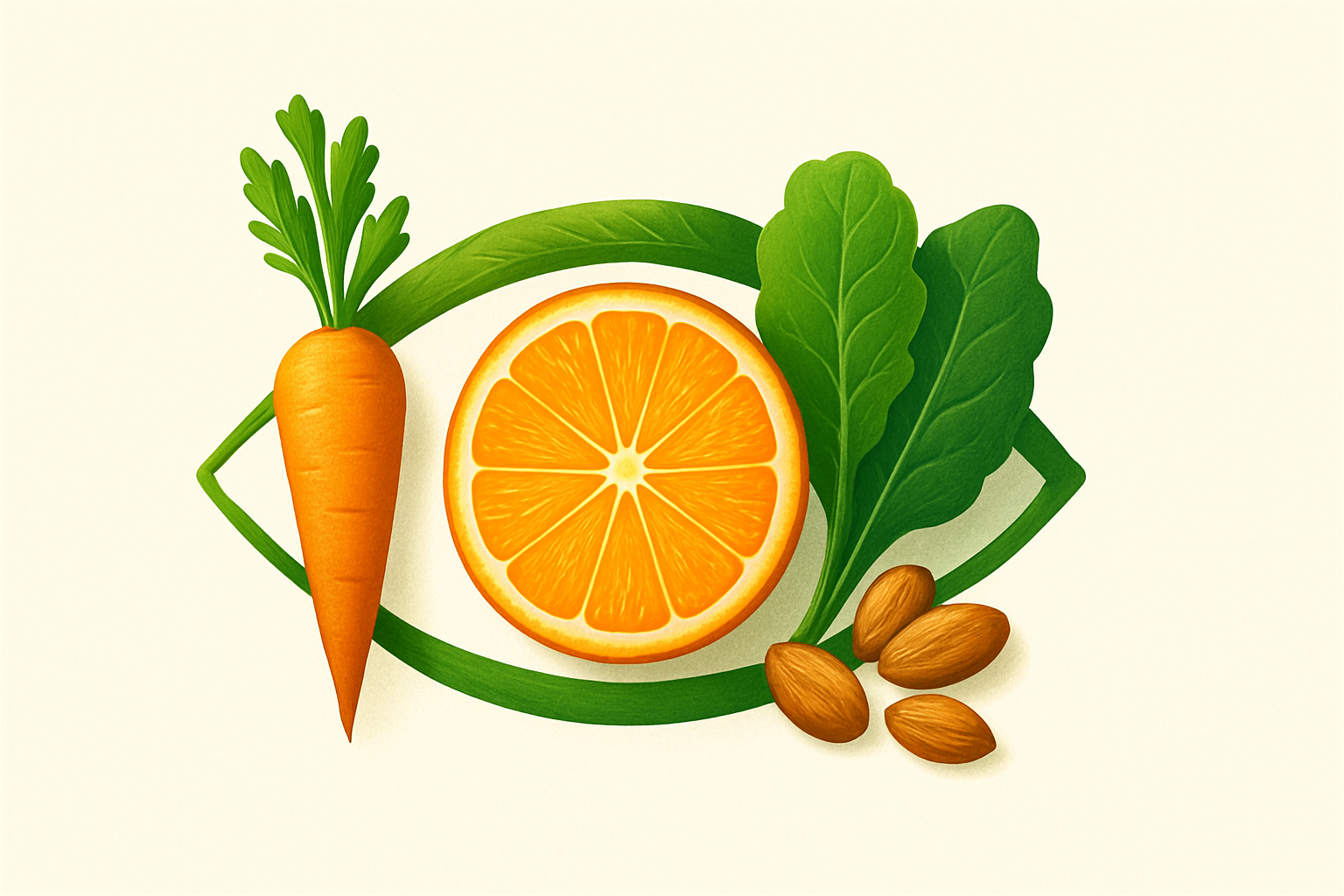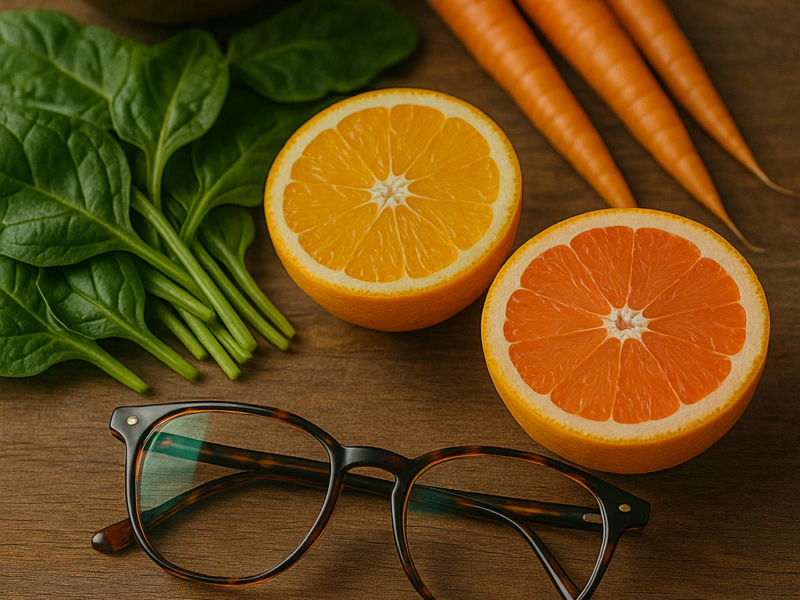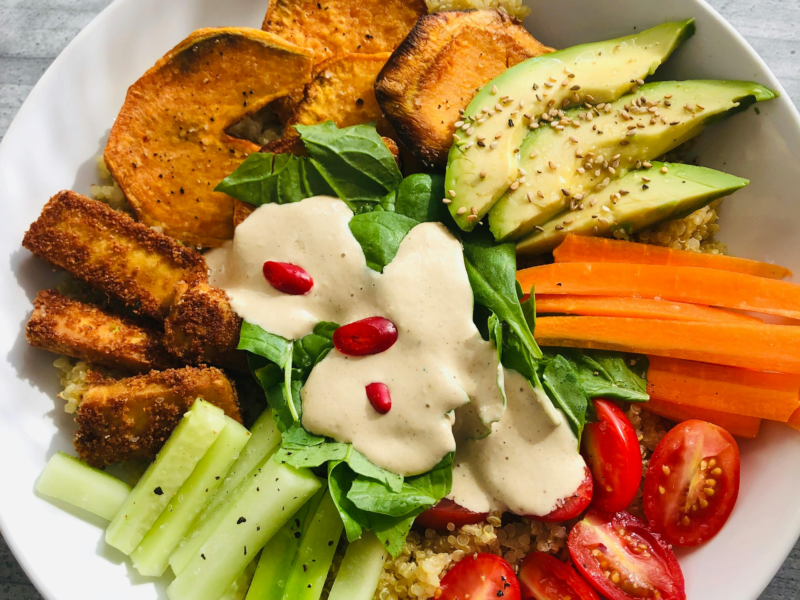Introduction
Your eyes are among the most complex and delicate organs in the human body. They are also highly susceptible to oxidative stress caused by free radicals, UV exposure, digital strain, and aging. Over the years, research has consistently shown that antioxidants—especially vitamins A, C, and E—play a vital role in protecting your vision and lowering the risk of sight-threatening conditions such as cataracts, age-related macular degeneration (AMD), and dry eyes.
This article explores in detail how these vitamins work, what foods to find them in, and how much you really need for long-term vision protection.
What Are Antioxidants and Why Do They Matter for Eye Health?
Antioxidants are molecules that neutralize harmful free radicals. Free radicals damage cells by causing oxidative stress, which accelerates aging and increases the risk of chronic diseases—including those that affect your eyes.
Your eyes are constantly exposed to light and oxygen, making them especially vulnerable to oxidative damage. This is where vitamins A, C, and E come in: they act as natural defenders of your vision.
👉 Related Reading: Nutrition for Vision: Essential Foods and Supplements for Healthy Eyes
Vitamin A: The Vision Vitamin
Role in Eye Health
- Essential for the formation of rhodopsin, a protein in your eyes that helps you see in low-light conditions.
- Maintains the health of the cornea, the clear front surface of your eye.
- Prevents night blindness and reduces the risk of xerophthalmia, a severe dryness of the eyes that can lead to blindness.
Food Sources
- Carrots
- Sweet potatoes
- Spinach
- Kale
- Beef liver
- Dairy products
Recommended Intake
The recommended daily allowance (RDA) for vitamin A is about 700 mcg for women and 900 mcg for men.
Risks of Deficiency
- Poor night vision
- Dry eyes
- Higher susceptibility to eye infections
👉 Related Reading: Eye Care for All Ages: Essential Tips for Lifelong Vision Health
Did you know? 💡 A deficiency in vitamin A is the leading cause of preventable blindness in children worldwide.
Vitamin C: The Eye’s UV Shield
Role in Eye Health
- Protects against cataracts by reducing oxidative stress caused by UV light exposure.
- Supports collagen production in the cornea and blood vessels of the retina.
- Works synergistically with vitamin E to enhance antioxidant protection.
Food Sources
- Oranges
- Strawberries
- Red bell peppers
- Broccoli
- Kiwi
- Brussels sprouts
Recommended Intake
Adults should aim for 75 mg daily (women) and 90 mg (men). Higher doses may be beneficial for those at risk of eye disease, but megadoses should be avoided without medical supervision.
👉 Related Reading: Cataracts: Causes, Symptoms, Prevention, and Treatment
Useful Tip: Eat citrus fruits, bell peppers, broccoli, and kale daily to naturally boost your vitamin C intake.
Vitamin E: The Retinal Protector
Role in Eye Health
- Protects the delicate fatty acids in the retina from oxidative damage.
- Reduces the progression of age-related macular degeneration (AMD).
- Works with vitamin C to regenerate its antioxidant properties, providing a stronger defense against oxidative stress.
Food Sources
- Almonds
- Sunflower seeds
- Hazelnuts
- Wheat germ oil
- Spinach
Recommended Intake
The RDA for vitamin E is 15 mg per day for adults.
Antioxidants and Age-Related Macular Degeneration (AMD)
The AREDS (Age-Related Eye Disease Study) and AREDS2 clinical trials showed that high-dose supplementation with vitamins C, E, beta-carotene (or lutein/zeaxanthin), and zinc significantly slowed the progression of AMD in individuals at high risk.
This groundbreaking study confirmed what eye specialists long suspected: antioxidants are not just beneficial but crucial for long-term vision preservation.
Antioxidants and Cataract Prevention
Cataracts form when the proteins in your eye’s lens clump together, causing clouding. Antioxidants such as vitamins C and E help delay this process by protecting the lens from oxidative stress and UV-induced damage.
👉 Related Reading: Vision Biohacking: Cutting-Edge Strategies to Improve Your Eyesight Naturally
Did you know? 💡 AREDS2 (Age-Related Eye Disease Study) found that a specific combination of antioxidants reduced advanced AMD risk by 25%.
Should You Supplement or Just Eat a Healthy Diet?
While it’s always best to get your nutrients from whole foods, certain people may benefit from supplementation:
- Older adults at risk of AMD
- Smokers or those exposed to high oxidative stress
- People with poor dietary intake
However, excessive supplementation can be harmful. For example, too much vitamin A can be toxic, and high doses of vitamin E may increase bleeding risk. Always consult with your eye doctor before beginning supplements.
Lifestyle Habits That Boost Antioxidant Benefits
- Quit smoking: Smoking increases oxidative stress and depletes vitamin C levels.
- Wear sunglasses: Protects your eyes from UV damage.
- Eat a balanced diet: Focus on colorful fruits and vegetables rich in antioxidants.
- Limit alcohol: Excessive alcohol consumption impairs antioxidant defenses.
Frequently Asked Questions (FAQ)
Q1: Can I get enough antioxidants just from diet?
A: Yes, with a balanced diet, but supplements may be necessary if you’re at risk for AMD or cataracts.
Q2: Do vitamins really prevent eye diseases?
A: Antioxidants can’t cure diseases, but they can delay or reduce progression, especially in age-related conditions.
Q3: Are there risks of taking too many antioxidants?
A: Excess vitamin A can be toxic, while too much vitamin E may affect blood clotting. Always follow recommended dosages.
Q4: Do children need antioxidant supplements for vision?
A: Usually not — a diet rich in fruits and vegetables is enough. Supplements are mostly for adults at risk.
Q5: What’s the difference between vitamins and carotenoids like lutein and zeaxanthin?
A: Vitamins A, C, and E are traditional antioxidants, while lutein and zeaxanthin are carotenoids that protect the macula specifically.
👉 Related Reading: Preventing Vision Loss: Comprehensive Guide to Protecting Your Eyesight Naturally
Did you know? 💡 Small, consistent dietary changes can do more for your eyes than expensive treatments later in life.
🛒 Recommended Products for Eye Health
- Performance Lab Vision
- NOW Foods Vitamin A (10,000 IU)
- Nature’s Bounty Vitamin E 400 IU Softgels
- Blue Light Blocking Glasses (UV400 Protection)
- Bausch + Lomb Ocuvite Adult 50+ Eye Vitamin
Conclusion
Antioxidants, particularly vitamins A, C, and E, are essential allies in protecting your vision. From reducing your risk of night blindness and cataracts to slowing age-related macular degeneration, these vitamins form the cornerstone of long-term eye health.
By making dietary choices rich in antioxidant-rich foods—or supplementing under the guidance of your doctor—you can ensure that your eyes stay strong, clear, and healthy well into old age.


